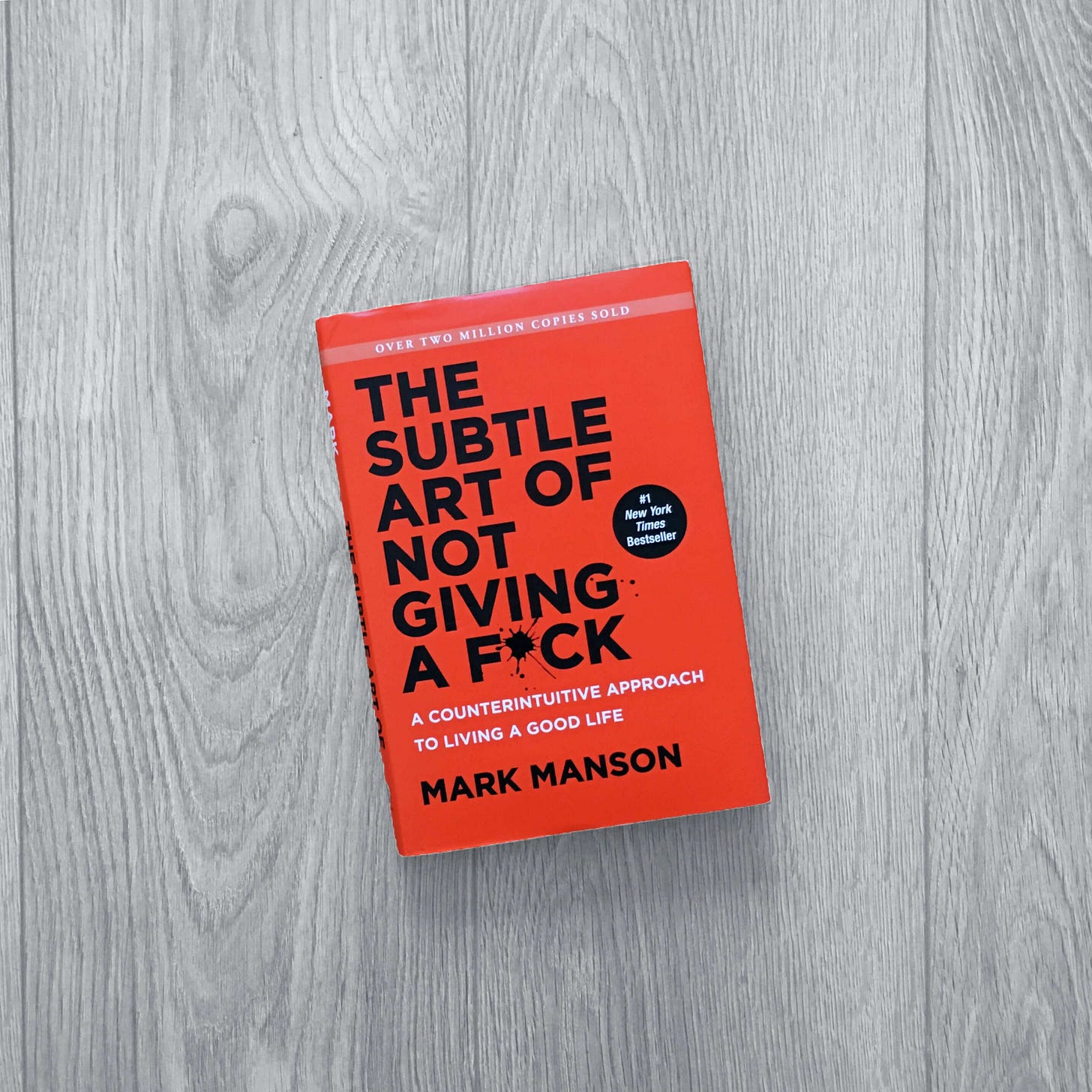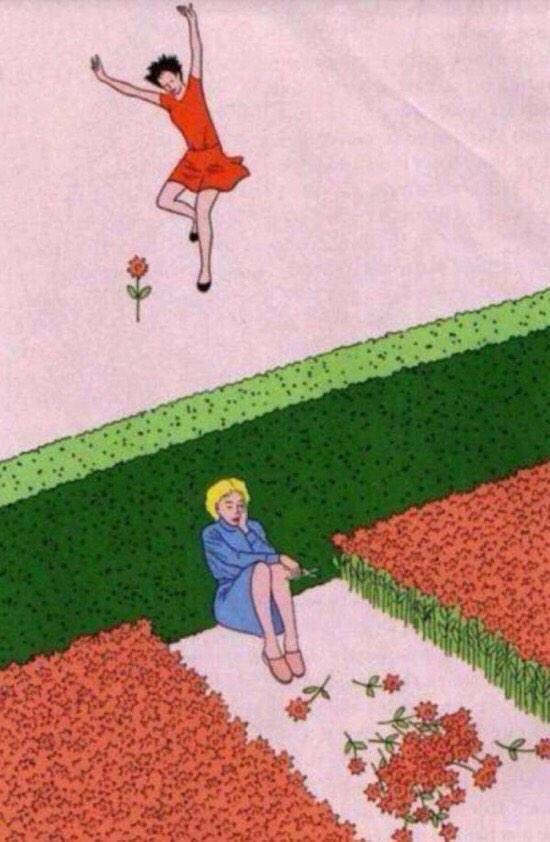The Subtle Art of Not Giving a F*ck by Mark Manson
Three Point Summary | Notes on big ideas from intriguing books
Jeff Sullivan’s Three Pointers

Mark Manson is an American self-help author and blogger. He has authored or co-authored three New York Times bestsellers.
There is a subtle art to not giving a fuck. And though the concept may sound ridiculous and I may sound like an asshole, what I’m talking about here is essentially learning how to focus and prioritize your thoughts effectively—how to pick and choose what matters to you and what does not to you based on finely honed personal values.
Mark Manson
I. Pain
Manson shares the backwards law from Alan Watts:
The desire for more experience is itself a negative experience. And, paradoxically, the acceptance of one’s negative experience is itself a positive experience.
We spend so much time desiring and craving experiences that make us feel alive in the present moment. However, the very process of wishing for a positive experience takes you out of the present moment and doesn’t feel good.
Conversely, when you accept a negative experience or behavior pattern you have, it can feel good. Because you then have a chance to fix it, instead of denying it and burying it in your subconscious.
Manson elaborates on these ideas by writing:
The avoidance of suffering is a form of suffering. The avoidance of struggle is a struggle. The denial of failure is a failure. Hiding what is shameful is a form of shame.
We suffer for the simple reason that suffering is biologically useful. It is nature’s preferred agent for inspiring change…Constant dissatisfaction has kept our species fighting and striving, building and conquering. So no-our own pain and misery aren’t a bug of human evolution, they’re a feature...Pain can, at times, be life-or-death important to our well-being.
If you’re avoiding your problems or feel like you don’t have any problems, then you’re going to make yourself miserable.
Within the realm of pain and problems Manson makes an encouraging observation:
The truth is that there’s no such thing as a personal problem. If you’ve got a problem, chances are millions of other people have had it in the past, have it now, and are going to have it in the future. Likely people you know too.
The idea is not to minimize your issues or say they aren’t painful. It just means your not alone. You never were.
Realizing this can do wonders for your state of mind.
II. Selective F*ck Giving
A friend once described me as ‘ruthless.’ Perhaps its in part because the influence this book has had on me.
When you think about it, there’s unlimited things to care—or give a f*ck—about. You can’t care about everything:
You are already choosing, in every moment of every day, what to give a fuck about, so change is as simple as choosing to give a fuck about something else. It really is that simple. It’s just not easy.
You and everyone you know are going to be dead soon. And in the short amount of time between here and there, you have a limited amount of fucks to give. Very few, in fact. And if you go around giving a fuck about everything and everyone without conscious thought or choice—well, then you’re going to get fucked.
The reasoning to not give a fuck about most things is because you don’t control most things.
The brain is a meaning-making machine. You always have the freedom to choose how you assign meaning to things.
We don’t always control what happens to us. But we always control how we interpret what happens to us, as well as how we respond.
Nobody is ever responsible for your unhappiness but you. This is because you always get to choose how you see things, how you react to things, how you value things. You always get to choose the metric by which to measure your experiences.
This picture sums up these ideas well:

III. Self-Improvement
Manson gives us a great breakdown of personal development:
Personal growth can actually be quite scientific. Our values are our hypotheses: this behavior is good and important. Our actions are the experiments; the resulting emotions and thought patterns are our data.
The next two excerpts are some of the most practical ways to improve yourself.
You can’t grow if you think you’re right all the time. You can’t learn if you don’t try to understand other cultures and value systems.
Instead of looking to be right all the time, we should be looking for how we’re wrong all the time. Because we are…Openness to being must exist for any real change or growth to take place.
Travel is a fantastic self-development tool, because it extricates you from the values of your culture and shows you that another society can live with entirely different values and still function and not hate themselves. This exposure to different cultural values and metrics then forces you to reexamine what seems obvious in your own life and to consider that perhaps it’s not necessarily the best way to live.
An under-emphasized area of self-improvement is simplicity.
Bruce Lee believed “the height of cultivation runs to simplicity”.
Nassim Taleb wrote that “sophisticated minds adopt simplified lifestyles; simplistic minds are drawn to overly sophisticated lifestyles.”
Leonardo da Vinci believed that “simplicity is the ultimate sophistication.”
Manson agrees:
More is not always better. In fact, the opposite is true. We are actually often happier with less. When we’re overloaded with opportunities and options, we suffer from what psychologists refer to as the paradox of choice. Basically, the more options we’re given, the less satisfied we become with whatever we choose, because we’re aware of all the other options we’re potentially forfeiting.
You’ll find freedom and fulfillment in focus. To focus, you must simplify.
AND 1—Smile :)
Manson leaves us with a romantic paragraph:
You are already great because in the face of endless confusion and certain death, you continue to choose what to give a fuck about and what not to. This mere fact, this simple optioning for your own values in life, already makes you beautiful, already makes you successful, and already makes you loved. Even if you don’t realize it.



That’s a really good book!
Great job! Just added this to my list!